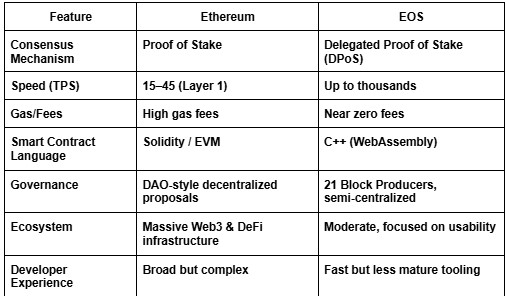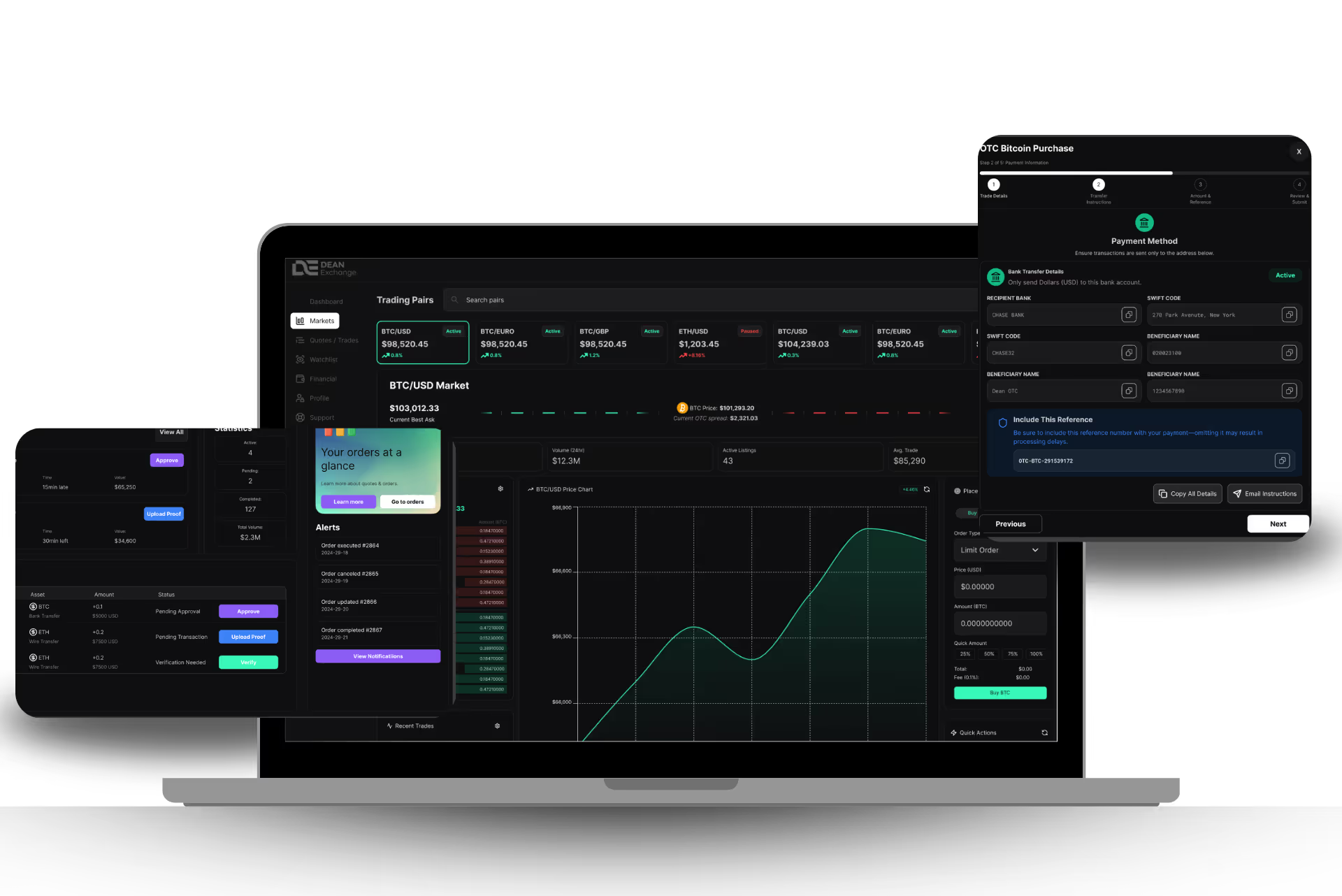By the
This is some text inside of a div block.
This is some text inside of a div block.
•
5
min read

Ethereum is the undisputed leader in the smart contract space, powering thousands of decentralized applications (dApps) and driving the Web3 ecosystem. But it hasn’t been without challenges—notably, high gas fees, network congestion, and scalability issues. This opened the door for competitors to offer alternative solutions, including EOS, which debuted with the promise of being an "Ethereum killer."
In this article, we compare EOS and Ethereum across architecture, performance, development ecosystems, and real-world adoption to understand whether EOS still holds weight as a serious challenger in 2025.
Ethereum in 2025: Web3's Cornerstone Since its launch in 2015, Ethereum has evolved from a revolutionary smart contract platform into the de facto infrastructure layer for decentralized finance (DeFi), NFTs, DAOs, and Web3 innovation. With the transition to Proof of Stake (Ethereum 2.0), energy usage has drastically decreased, and efforts are underway to improve scalability through Layer 2 solutions like rollups and sharding.
EOS Overview: Built for Speed and Scale EOS was launched in 2018 by Block.one to overcome Ethereum’s limitations by offering high throughput and no transaction fees. It uses Delegated Proof of Stake (DPoS), which allows a limited number of validators (Block Producers) to process transactions quickly and efficiently. EOS focuses on usability and scalability, particularly for enterprise-grade applications.
Comparison Table: Ethereum vs EOS

Pros and Cons of EOS Pros:
Cons:
Is EOS Still an Ethereum Killer? The initial hype around EOS as an Ethereum killer has faded, largely due to a slower ecosystem evolution and governance concerns. However, the platform continues to serve niche enterprise use cases and has introduced the EOS EVM to offer compatibility with Ethereum-based smart contracts.
While Ethereum leads in adoption, developer support, and innovation, EOS remains a compelling choice for applications that require speed, low fees, and a streamlined user experience. EOS’s continued investment in usability and its rebranding under the EOS Network Foundation could signal a new chapter—but it's unlikely to dethrone Ethereum.
Dean Exchange Insight EOS reminds us that blockchain isn't one-size-fits-all. Ethereum offers flexibility and network effects, but EOS emphasizes performance and simplicity. Choosing a platform depends on your project's technical needs, user base, and long-term strategy.
Ethereum continues to dominate due to its mature ecosystem, broad adoption, and ongoing upgrades. EOS, while technically advanced in certain areas, remains more of a specialist tool than a true replacement. Still, for developers and enterprises focused on transaction speed and cost-efficiency, EOS may be the better choice.
Want to stay ahead in the blockchain space? Join Dean Exchange for courses, expert insights, and live blockchain analysis tailored to every learning level.


Join our newsletter for exclusive insights, breaking crypto trends, and learning opportunities—delivered straight to your inbox.